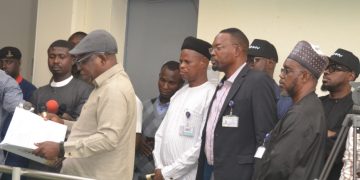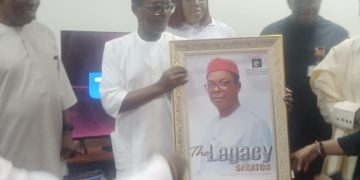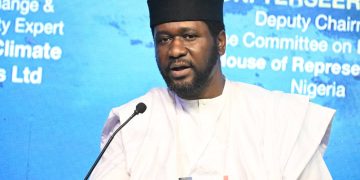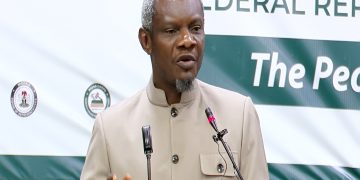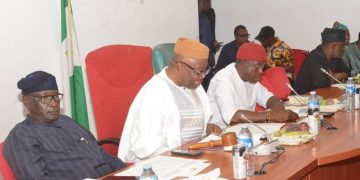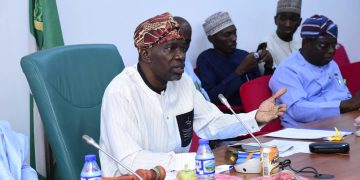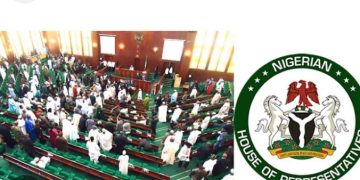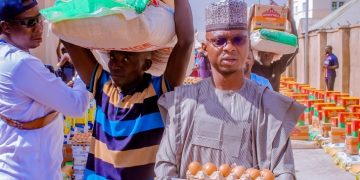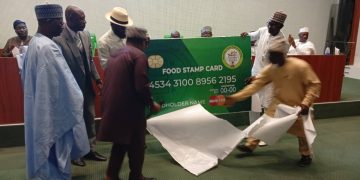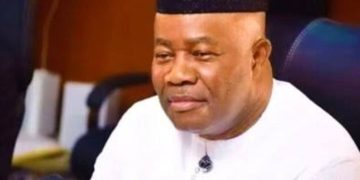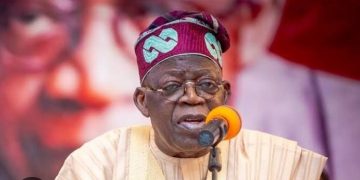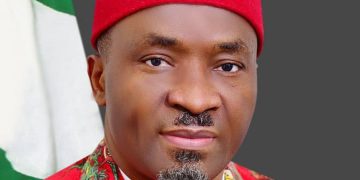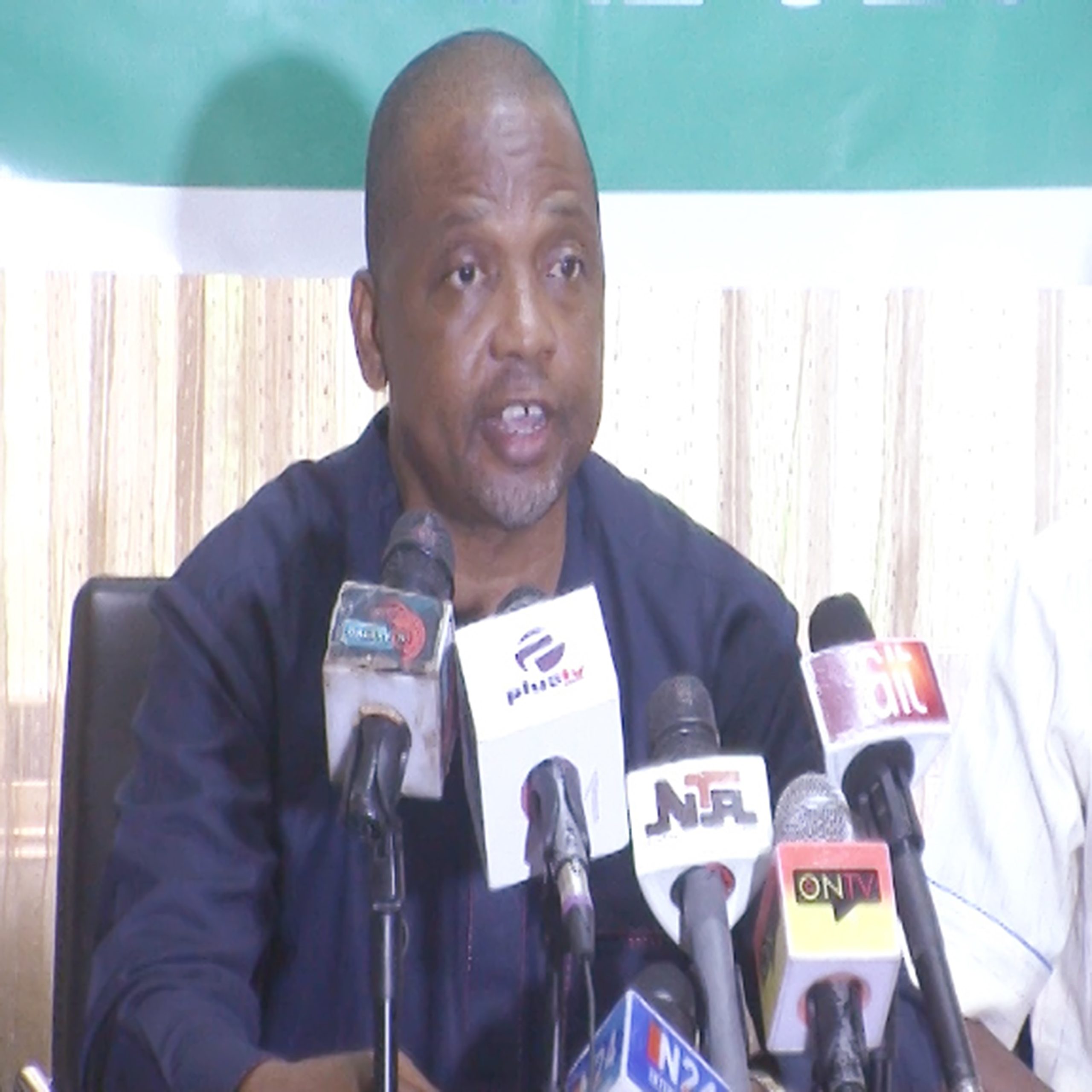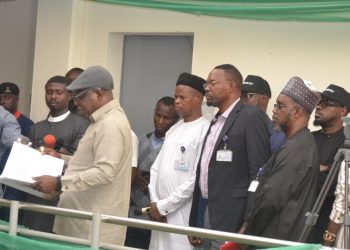By Comfort Olayinka
The Speaker of the House of Representatives, Rt Hon. Tajudeen Abbas, represented by Deputy Speaker, Hon. Benjamin Okezie Kalu, warned that any significant rise in electricity tariff could have far-reaching consequences for the Nigerian economy and the livelihoods of the people.
Kalu disclosed this on Tuesday at the National Assembly complex during the one-day public hearing on the electricity tariff increase. In his opening speech, he emphasized the legislature’s commitment to supporting President Bola Ahmed Tinubu’s administration in achieving its goal of reforming the power sector. Kalu assured that the House of Representatives is dedicated to ensuring that the reforms are implemented in a way that balances the needs of all stakeholders, while also protecting the interests of the Nigerian people.
“We are dedicated to providing legislative support to the efforts of Tinubu’s administration in reforming the power sector by addressing all legal and legislative impediments accordingly.”
Kalu acknowledged the potential impact of the tariff hike on the Nigerian economy and the people, emphasizing the need to strike a balance. He stressed that while reforms are necessary, electricity must remain affordable for Nigerians.
He added “There are genuine concerns that higher utility bills resulting from this tariff hike could have a ripple effect on operational costs for businesses, potentially leading to increased prices for goods and services.
He said: “The fears expressed by many are valid – that such a sharp increase in electricity tariffs will only exacerbate the economic hardships already faced by our people. There are genuine concerns that higher utility bills resulting from this tariff hike could have a ripple effect on operational costs for businesses, potentially leading to increased prices for goods and services
The Committee expressed disappointment and concern over the absence of organized Labour at the hearing, despite being vocal in their agitation for the reversal of the tariff hike. Committee members criticized the Labour leaders for choosing to attend the International Labour Conference in Geneva over an important national issue, questioning their priorities and commitment to attend the International Labour Conference in Geneva over an important national issue, questioning their priorities and commitment to the welfare of Nigerian workers.
The Chairman of the committee Hon Victor Nwokolo stated that the Committee has received numerous complaints about the Nigeria Electricity Regulatory Commission’s (NERC) decision to increase electricity tariffs from N64 to N225 per kilowatt. The complaints focus on two main issues:
- NERC’s failure to consult stakeholders as required by law before approving the increase
- The regulator’s broken promise to provide 20 hours of electricity supply, which has not been delivered
Nwokolo affirmed the Committee’s commitment to addressing these complaints, ensuring that the Minister, regulator, and operators provide the necessary information to report to the plenary. The report will evaluate whether all parties have acted in a legal, rational, and reasonable manner.
“Since this announcement, we have received a lot of complaints about misgivings on both the process and the substance of the regulatory action of NERC.
“Many of the complaints relate to the lack of consultation by the regulator as required by law before approving the increase. Others relate to the lack of 20 hours of electricity supply as promised by the regulator which has not been delivered.
“We have invited both the policymakers, represented by the Honourable Minister of Power, the regulator, NERC, the licensees who are the operators of the Nigerian electricity industry, the organized labour centers, organized private sector and consumer groups to share their views about the process that NERC employed to approve the new tariff.
The Minister of power Adebayo Adelabu explained that instead of accumulating debt, the Ministry introduced a model where consumers pay a higher tariff on band A. Adelabu emphasized,
“Despite the increase, our electricity prices remain among the lowest in sub-Saharan Africa, with neighboring countries paying even more. The cost of connecting to the national grid’s band A is nearly 50% lower than generating power through fuel and diesel. For businesses, grid connection is more cost-effective than individual power generation.”
He assured that President Bola Tinubu’s administration prioritizes the well-being of citizens, aiming to improve the situation in the country.
The Minister stated, “we are out to make things better for Nigeria and to create industrial development through our local manufacturing and energy is needed to do this.”
[7:24 AM, 6/12/2024] Mrs Comfort Ajayi: The Minister reiterated the increase in tariffs was not targeted at making life difficult for Nigerians but to make life affordable for the people.
The Committee Chairman Hon Victor Nwokolo in his closing remarks stated that the committee will conduct a thorough investigation to verify the accuracy of the facts and figures presented. Additionally, they will reach out to relevant stakeholders and conduct further consultations outside Abuja to determine the exact number of metered and unmetered consumers.”
“The matter is not ending today, we are also not concluding with the facts and figures presented by anybody or Agency today, we will make consultations outside Abuja to know how many people are metered and unmetered.


